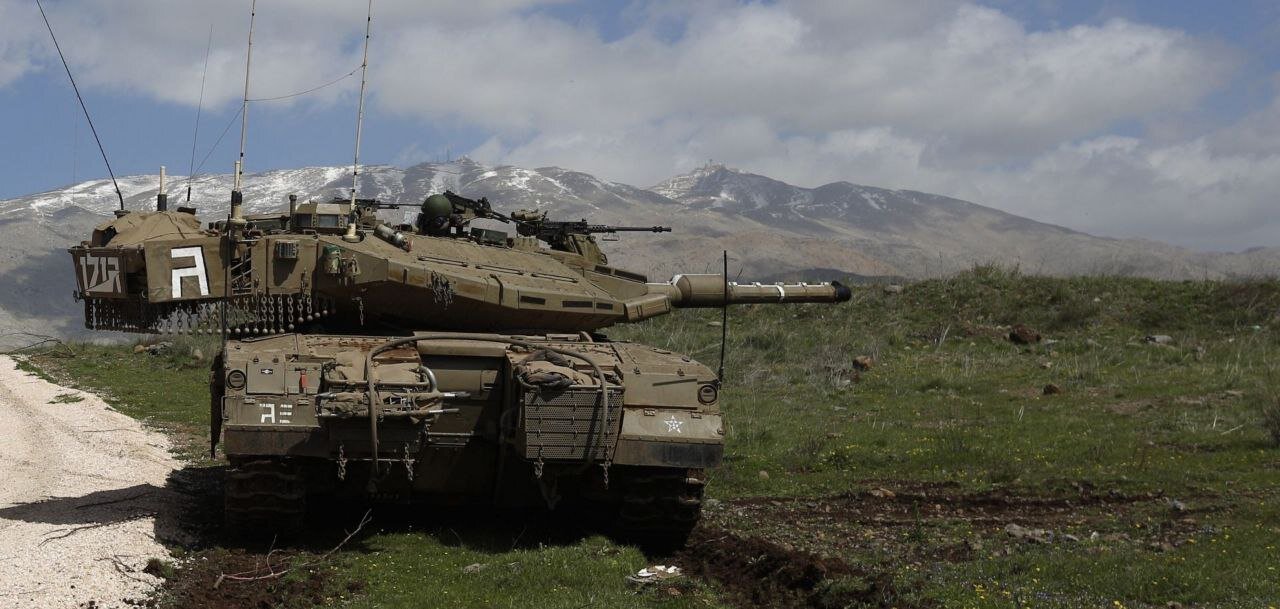Israeli tanks enter Syria for first time in 50 years
Israeli tanks enter Syria for first time in 50 years
TEHRAN - The Israeli regime makes the most of the instability in Syria to expand its expansionist project.

As insecurity and a power vacuum emerged in the Arab state after armed groups took control of state institutions, the Israelis seized on the crisis.
Israeli tanks were seen crossing into the outskirts of the southeastern Syrian province of Quneitra on Sunday, with shelling heard in the area.
The Israeli occupation forces also dispatched infantry to a buffer zone in the occupied Syrian Golan Heights, the regime’s military confirmed on Sunday.
The occupation army said it would remain in Syrian territory for “as long as necessary”
Hebrew media reported that Unit 5101, more commonly known as Shaldag, has reached the summit of Syria’s Mount Hermon in the Golan Heights.
Analysts have said the land grab signals new Israeli ambitions to occupy and annex large parts of Syria after the fall of its government.
It is the first time Israeli forces have taken up positions beyond the buffer zone since it was established in 1974.
The regime further exploited the crisis in Syria with airstrikes on key sites. Israel’s air raids on the Mazzeh district of the capital, Damascus, with explosions heard in the vicinity.
Separately, regional intelligence sources told news agencies that Israeli fighter jets targeted the Syrian air base of Khalkhala in southern Syria.
By Sunday evening, Israeli warplanes bombarded more Syrian army sites in Damascus.
The lightening developments in Syria have sparked widespread comment across Israeli politics.
Prime Minister Benjamin Netanyahu hailed the fall of President Assad as a “historic day.”
“This of course creates new, very important opportunities for Israel,” he said.
Opposition leader Yair Lapid said they showed why “it is more important than ever to create a strong regional coalition, with Saudi Arabia and the countries of the Abraham Accords, to work together”.
“The Iranian axis has weakened significantly, and Israel needs to strive for an overall political achievement,” he added.
Other Israeli politicians called on the government in Tel Aviv to take control of the entire Golan Heights.
Government minister Amichai Chikli wrote in a social media post that there must be a new Israeli “defense zone” at the 1974 ceasefire line.
A member of the Israeli parliament, the Knesset, Tzvi Succot, echoed those comments, saying this measure would be “immense” during a time when the political and military cost “is likely lower than ever”.
Meanwhile, former Israeli military intelligence officer Lieutenant Colonel, Mordechai Kedar, was interviewed on Sunday by Hebrew media, Kan Reshet Bet, where he claimed:
“I am in contact with the rebels in Syria and I have passed a detailed list of equipment they requested from Israel to senior officials in the country. The rebels are willing to sign a peace agreement with Israel, only if they control Syria and Lebanon.”
The Israeli spy agency, Mossad, was also thrilled with the fall of Homs, a clear sign highlighting how significant this development was to the security of the regime.
In a post on social media, a Mossad-affiliated channel wrote: “Homs, the corridor used by Iran to bring weapons to Hezbollah, is no longer active.”
The post added: "Amazing".
There is no credible evidence that Iran had used the city of Homs to transfer weapons to the Lebanese resistance movement Hezbollah.
Experts say militants operating in Syria had previously received medical treatment at field hospitals in the occupied Golan as well as in the Israeli city of Safed.
Time will tell what the intentions of this latest mixture of armed groups are. Some have lately vowed to have a more moderate outlook with neighbors in the region and are no longer associated with Daesh and al-Qaeda.
Whether this outlook serves Israeli interests is a key factor as most countries in West Asia believe the Israeli regime is the source of instability in the region.
source: tehrantimes.com